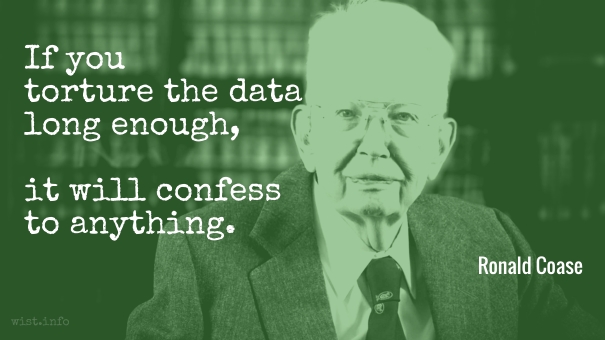To fight a real sorrow, a real loss, a real insult, a real disillusion, a real treachery was infinitely less difficult than to spend a night without sleep struggling with ghosts. The imagination is far better at inventing tortures than life because the imagination is a demon within us and it knows where to strike, where it hurts.
Quotations about:
torture
Note not all quotations have been tagged, so Search may find additional quotes on this topic.
Titan! to thee the strife was given
Between the suffering and the will,
Which torture where they cannot kill;
And the inexorable Heaven,
And the deaf tyranny of Fate,
The ruling principle of Hate,
Which for its pleasure doth create
The things it may annihilate,
Refused thee even the boon to die:
The wretched gift Eternity
Was thine — and thou hast borne it well.
Ah, God’s avenging justice! who could heap up
suffering and pain as strange as I saw here?
How can we let our guilt bring us to this?[Ahi giustizia di Dio! tante chi stipa
nove travaglie e pene quant’io viddi?
e perché nostra colpa sì ne scipa?]Dante Alighieri (1265-1321) Italian poet
The Divine Comedy [Divina Commedia], Book 1 “Inferno,” Canto 7, l. 19ff (7.19-21) (1309) [tr. Musa (1971)]
(Source)
(Source (Italian)). Alternate translations:
Great is God's Justice; as increase with Crimes
Their Punishments, which here I many saw:
But why do we encourage this increase?
[tr. Rogers (1782)]
Justice of Heav'n, from thine avenging hand
What nameless toils and tortures fill the strand!
Ah! why on mortal failings so severe!
[tr. Boyd (1802), st. 4]
Almighty Justice! in what store thou heap’st
New pains, new troubles, as I here beheld!
Wherefore doth fault of ours bring us to this?
[tr. Cary (1814)]
Justice of God! who might such travail heap,
Such unimagined pangs as there I saw?
And wherefore drains our guilt the cup so deep?
[tr. Dayman (1843)]
Ah, Justice Divine! who shall tell in few the many fresh pains and travails that I saw? and why does guilt of ours thus waste us?
[tr. Carlyle (1849)]
Ah! justice of our God! how it heaps up
New troubles and new punishments I saw,
And fault of ours such penalty to draw!
[tr. Bannerman (1850)]
Oh, God's great justice! who heaps up the mass
Of pains and labors new which meet mine eye?
Why does our crime so tear and torture us?
[tr. Johnston (1867)]
Justice of God, ah! who heaps up so many
New toils and sufferings as I beheld?
And why doth our transgression waste us so?
[tr. Longfellow (1867)]
Ah justice of God! who crowds all the new labours and pains that I saw? and wherefore does our sin so bring us low?
[tr. Butler (1885)]
Justice of God! who heapeth up such store
Of novel toils and pains which I have seen!
And why doth sin in such profusion pour?
[tr. Minchin (1885)]
Ah, Justice of God! Who heapeth up so many new travails and penalties as I saw? And why doth our sin so waste us?
[tr. Norton (1892)]
Ah me! Justice of God, that heapeth up un-heard-of toils and tortures in numbers such as I beheld! And why doth man's transgression scourge man so?
[tr. Sullivan (1893)]
Justice of God! that it can pack together
Such novel pains and travails as I witnessed!
And why is our own fault thus our destruction?
[tr. Griffith (1908)]
Ah, Justice of God, who crams together
all the new toils and pains that I saw?
And why does our sin so lay us waste?
[tr. Sinclair (1939)]
Ah! Divine Justice! Who crowds throe on throe,
Toil upon toil, such as mine eyes now met?
And why doth guilt of ours consume us so?
[tr. Binyon (1943)]
God's justice! Who shall tell the agonies,
Heaped thick and new before my shuddering glance?
Why must our guilt smite us with strokes like this?
[tr. Sayers (1949)]
O Holy Justice,
who could relate the agonies I saw!
What guilt is man that he can come to this?
[tr. Ciardi (1954)]
Ah, justice of God! who crams together so many new travails and penalties as I saw? And why does our guilt so waste us?
[tr. Singleton (1970)]
Justice of God! Who has amassed as many
strange tortures and travails as I have seen?
Why do we let our guilt consume us so?
[tr. Mandelbaum (1980)]
Justice of God! Who except you could gather
As many pains and punishments as I saw?
And why is it our faults must so devour us?
[tr. Sisson (1981)]
Justice of God! Who is it hat heaps together
So much peculiar torture and travail?
How is it that we choose to sin and wither?
[tr. Pinsky (1994), ll. 17-19]
Ah, justice of God! who stuffs in so many strange
travails and punishments as I saw? and why does
our own guilt so destroy us?
[tr. Durling (1996)]
O Divine Justice! Who can tell the many new pains and troubles, that I saw, and why our guilt so destroys us?
[tr. Kline (2002)]
God in all justice! I saw there so many
new forms of travail, so tightly crammed. By whom?
How can our guilt so rend and ruin us?
[tr. Kirkpatrick (2006)]
Ah, Justice of God, who heaps up
such strange punishment and pain as I saw there?
And why do our sins so waste us?
[tr. Hollander/Hollander (2007)]
Ah, God of Justice, Who does this, scraping
Together the brand-new pains and punishments
I saw? And why should sinning cause such wastage?
[tr. Raffel (2010)]
Merciful God! Who gets it in,
This wretched harvest? What accounts for it?
And why to such pain are we led by sin?
[tr. James (2013), ll. 18-20]
I love to see a Man zealous in a good Matter, and especially when his Zeal shews it self for advancing Morality, and promoting the Happiness of Mankind: But when I find the Instruments he works with are Racks and Gibbets, Gallies and Dungeons; when he imprisons Mens Persons, confiscates their Estates, ruins their Families, and burns the Body to save the Soul, I cannot stick to pronounce of such a one, that (whatever he may think of his Faith and Religion) his Faith is vain, and his Religion unprofitable.
Joseph Addison (1672-1719) English essayist, poet, statesman
Joseph Addison, The Spectator, #185 (2 Oct 1711)
(Source)
You can stand with the lash over a man, or you can stand by the prison door, or beneath the gallows, or by the stake, and say to this man: “Recant, or the lash descends, the prison door is locked upon you, the rope is put about your neck, or the torch is given to the fagot.” And so the man recants. Is he convinced? Not at all. Have you produced a new argument? Not the slightest. And yet the ignorant bigots of this world have been trying for thousands of years to rule the minds of men by brute force. They have endeavored to improve the mind by torturing the flesh — to spread religion with the sword and torch. They have tried to convince their brothers by putting their feet in iron boots, by putting fathers, mothers, patriots, philosophers and philanthropists in dungeons. And what has been the result? Are we any nearer thinking alike to-day than we were then?
Robert Green Ingersoll (1833-1899) American lawyer, agnostic, orator
Speech to the Jury, Trial of C. B. Reynolds for Blasphemy, Morristown, New Jersey (May 1887)
(Source)
Men use up their lives in heart-breaking political struggles, or get themselves killed in civil wars, or tortured in the secret prisons of the Gestapo, not in order to establish some central-heated, air-conditioned, strip-lighted Paradise, but because they want a world in which human beings love one another instead of swindling and murdering one another. And they want that world as a first step. Where they go from there is not so certain, and the attempt to foresee it in detail merely confuses the issue.
George Orwell (1903-1950) English writer [pseud. of Eric Arthur Blair]
“Can Socialists Be Happy?” Tribune (20 Dec 1943) [as John Freeman]
(Source)
I am convinced that boredom is one of the greatest tortures. If I were to imagine Hell, it would be the place where you were continually bored.
Erich Fromm (1900-1980) American psychoanalyst and social philosopher
“Medicine and the Ethical Problem of Modern Man,” The Dogma of Christ and Other Essays (1931)
(Source)
Throughout our nervous history, we have constructed pyramidic towers of evil, ofttimes in the name of good. Our greed, fear and lasciviousness have enabled us to murder our poets, who are ourselves, to castigate our priests, who are ourselves. The lists of our subversions of the good stretch from before recorded history to this moment. We drop our eyes at the mention of the bloody, torturous Inquisition. Our shoulders sag at the thoughts of African slaves lying spoon-fashion in the filthy hatches of slave-ships, and the subsequent auction blocks upon which were built great fortunes in our country. We turn our heads in bitter shame at the remembrance of Dachau and the other gas ovens, where millions of ourselves were murdered by millions of ourselves. As soon as we are reminded of our actions, more often than not we spend incredible energy trying to forget what we’ve just been reminded of.
Maya Angelou (1928-2014) American poet, memoirist, activist [b. Marguerite Ann Johnson]
“Facing Evil,” Interview by Bill Moyers (1982)
(Source)
Hell is not in torture.
Hell is in an empty heart.Kahlil Gibran (1883-1931) Lebanese-American poet, writer, painter [Gibran Khalil Gibran]
“The Sayings of the Brook [Ma Taqul al-Saqiyah]” [tr. Sheban]
(Source)
The barbarous custom of having men beaten who are suspected of having important secrets to reveal must be abolished. It has always been recognized that this way of interrogating men, by putting them to torture, produces nothing worthwhile. The poor wretches say anything that comes into their mind and what they think the interrogator wishes to know.
Napoleon Bonaparte (1769-1821) French emperor, military leader
Letter to Louis Alexandre Berthier (11 Nov 1798), in Correspondence Napoleon, Vol 5, #3605 [ed. Henri Plon (1861)]
(Source)
To conceive that compulsion and punishment are the proper means of reformation, is the sentiment of a barbarian; civilisation and science are calculated to explode so ferocious an idea. It was once universally admitted and approved; it is now necessarily upon the decline. Punishment must either ultimately succeed in imposing the sentiments it is employed to inculcate, upon the mind of the sufferer, or it must forcibly alienate him against them. The last of these can never be the intention of its employer, or have a tendency to justify its application. […] Yet to alienate the mind of the sufferer, from the individual that punishes, and from the sentiments he entertains, is perhaps the most common effect of punishment.
William Godwin (1756-1836) English journalist, political philosopher, novelist
Enquiry Concerning Political Justice, Vol. 2, bk. 7, ch. 5 (1793)
(Source)
Whether you believe that life evolved over billions of years or God made everything, you can’t justify torturing an animal for a shampoo.
You’re supposed to look at that figure of Christ on the cross and think, “How could a man suffer like that and forgive?” Not, “Romans are pussies — he still has his eyes.”
What havoc has been made of Books through every Century of the Christian Æra? Where are fifty Gospells condemned as spurious by the Bull of Pope Gelasius. Where are the forty Waggon Loads of Hebrew Manuscripts burned in France by order of another Pope, because suspected of Heresy? Remember the Index expurgatorius, the Inquisitions, the Stake, the Axe the halter and the Guillotine; and Oh! horrible the Rack. This is as bad if not worse than a slow fire.
John Adams (1735-1826) American lawyer, Founding Father, statesman, US President (1797-1801)
Letter to John Taylor (14 Dec 1814)
(Source)
SIMON: What happens if they board us?
ZOE: If they take the ship, they’ll rape us to death, eat our flesh, and sew our skins into their clothing. And if we’re very, very lucky, they’ll do it in that order.
They had Gebert down there, slapping him around and squealing and yelling at him. If you’re so sure violence is inferior technique, you should have seen that exhibition; it was wonderful. They say it works sometimes, but even if it does, how could you depend on anything you got that way? Not to mention that after you had done it a few times any decent garbage can would be ashamed to have you found in it.
What is blasphemy? I will give you a definition; I will give you my thought upon this subject. What is real blasphemy?
To live on the unpaid labor of other men — that is blasphemy.
To enslave your fellow-man, to put chains upon his body — that is blasphemy.
To enslave the minds of men, to put manacles upon the brain, padlocks upon the lips — that is blasphemy.
To deny what you believe to be true, to admit to be true what you believe to be a lie — that is blasphemy.
To strike the weak and unprotected, in order that you may gain the applause of the ignorant and superstitious mob — that is blasphemy.
To persecute the intelligent few, at the command of the ignorant many — that is blasphemy.
To forge chains, to build dungeons, for your honest fellow-men — that is blasphemy.
To pollute the souls of children with the dogma of eternal pain — that is blasphemy.
To violate your conscience — that is blasphemy.
The jury that gives an unjust verdict, and the judge who pronounces an unjust sentence, are blasphemers.
The man who bows to public opinion against his better judgment and against his honest conviction, is a blasphemer.Robert Green Ingersoll (1833-1899) American lawyer, agnostic, orator
Trial of C.B. Reynolds for blasphemy (May 1887)
(Source)
People do these things to other people. Not just in Nazi concentration camps and in Abu Ghraib when it was run by Saddam Hussein. Americans, too, do them when they have permission. When they are told or made to feel that those over whom they have absolute power deserve to be mistreated, humiliated, tormented. They do them when they are led to believe that the people they are torturing belong to an inferior, despicable race or religion. For the meaning of these pictures is not just that these acts were performed, but that their perpetrators had no sense that there was anything wrong in what the pictures show.
No orthodox church ever had power that it did not endeavor to make people think its way by force and flame.
Robert Green Ingersoll (1833-1899) American lawyer, agnostic, orator
Trial of C.B. Reynolds for blasphemy (May 1887)
(Source)
You cannot change the conclusion of the brain by torture; nor by social ostracism. But I will tell you what you can do by these, and what you have done. You can make hypocrites by the million. You can make a man say that he has changed his mind; but he remains of the same opinion still. Put fetters all over him; crush his feet in iron boots; stretch him to the last gasp upon the holy rack; burn him, if you please, but his ashes will be of the same opinion still.
Robert Green Ingersoll (1833-1899) American lawyer, agnostic, orator
“The Liberty of Man, Woman, and Child” (1877)
(Source)























